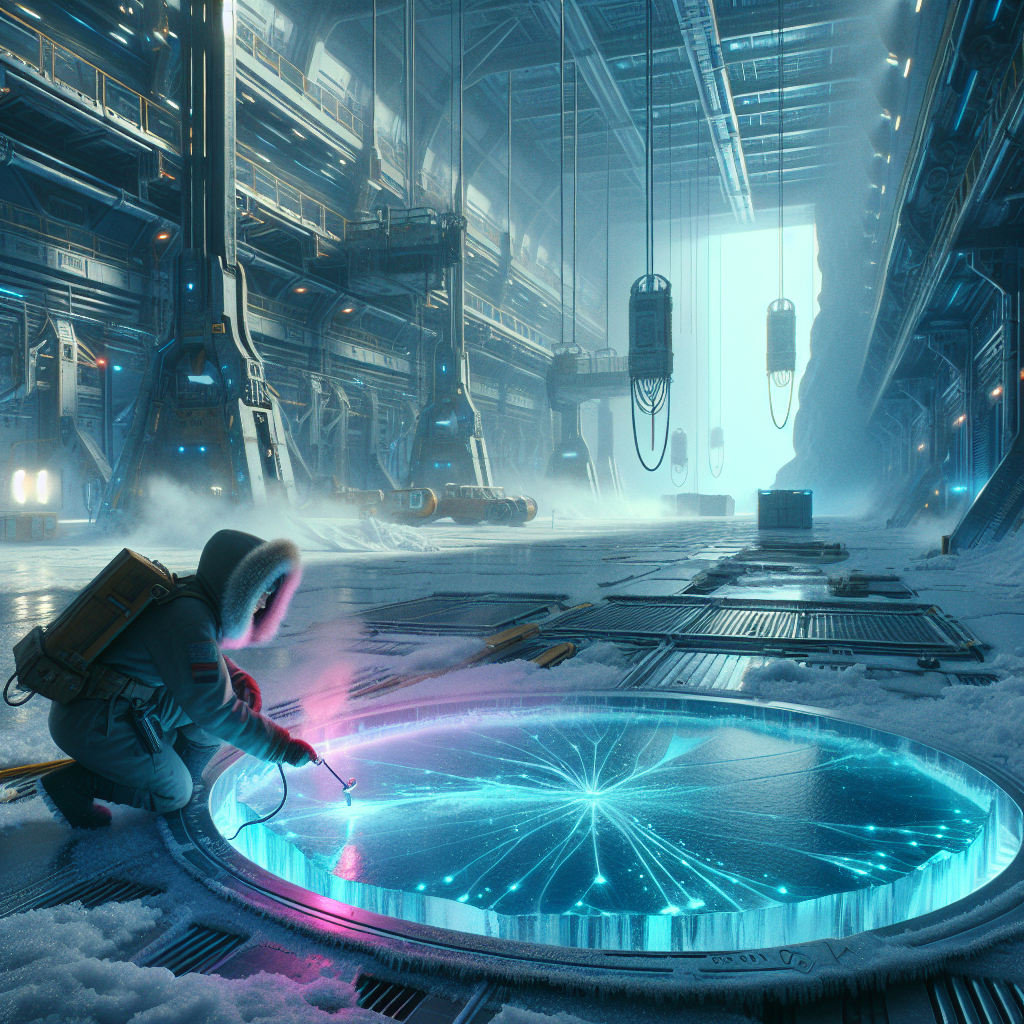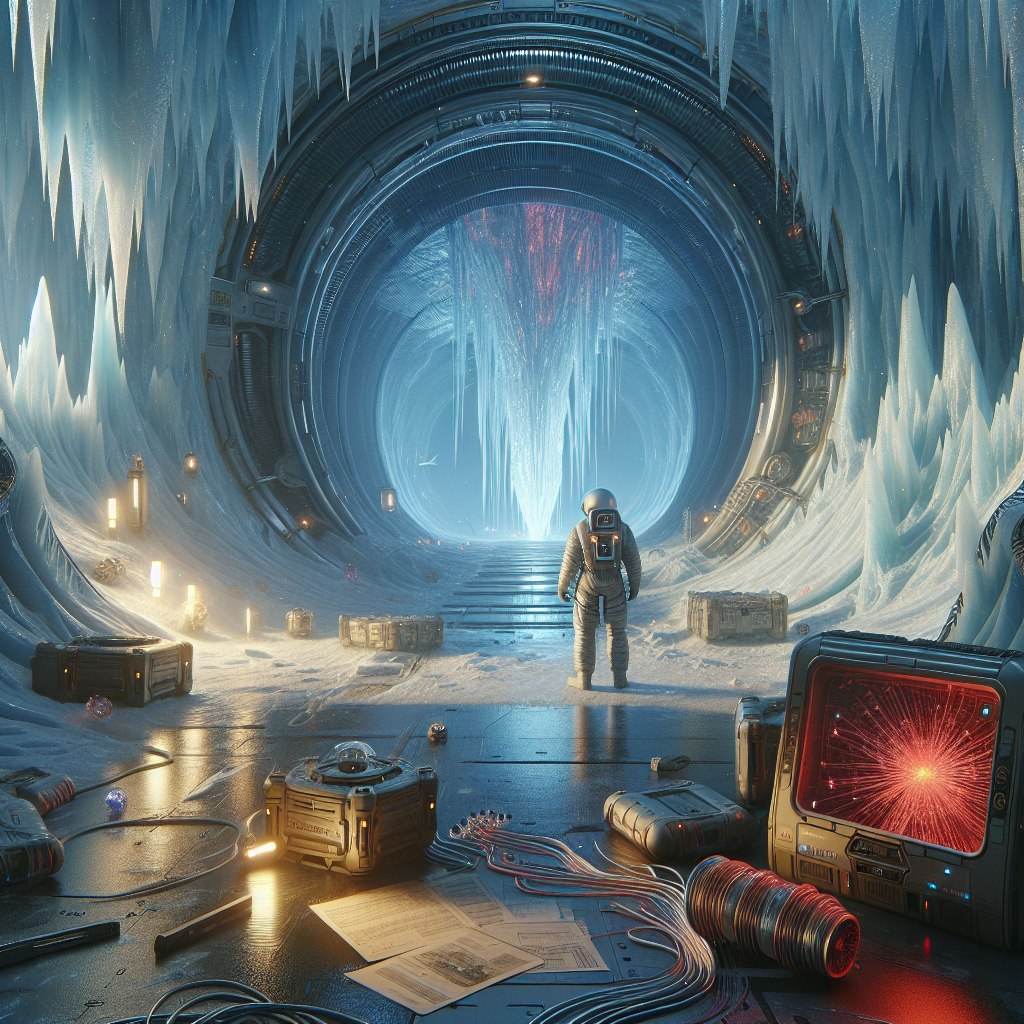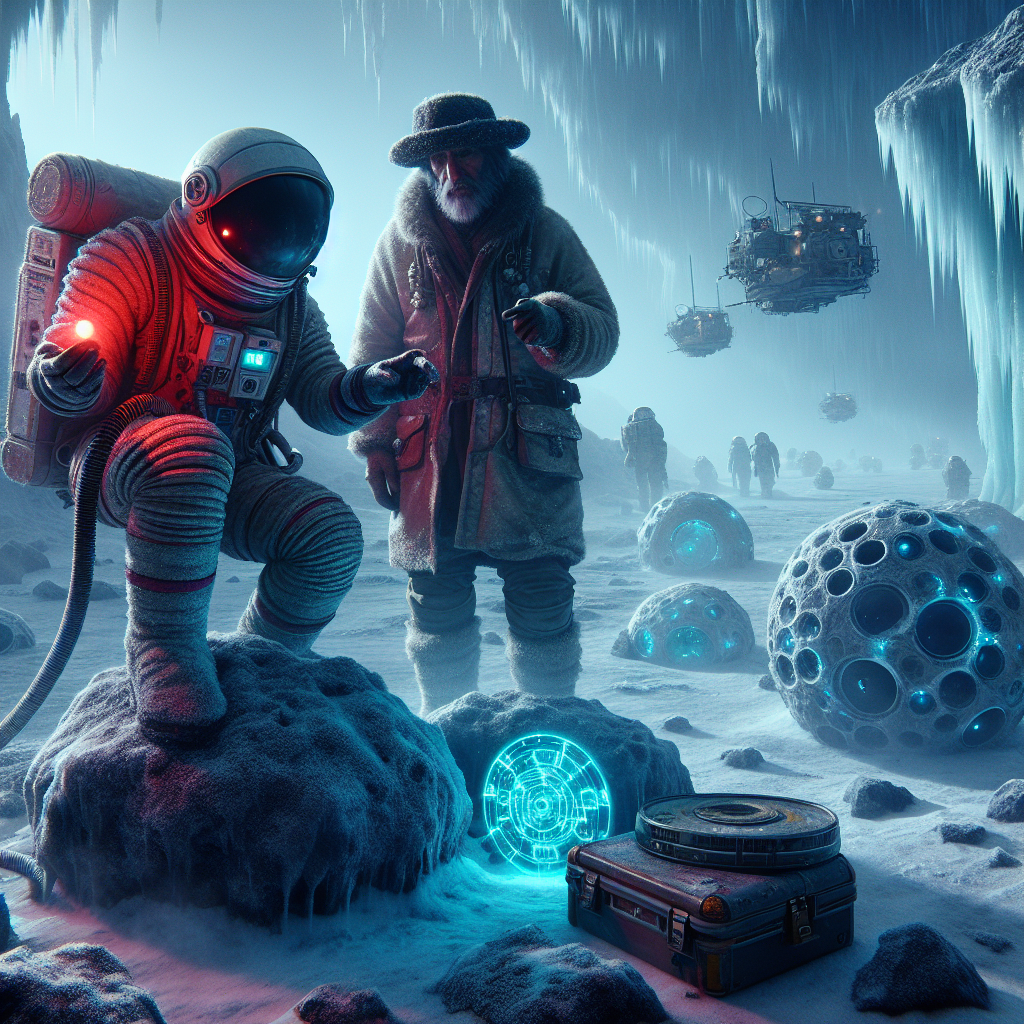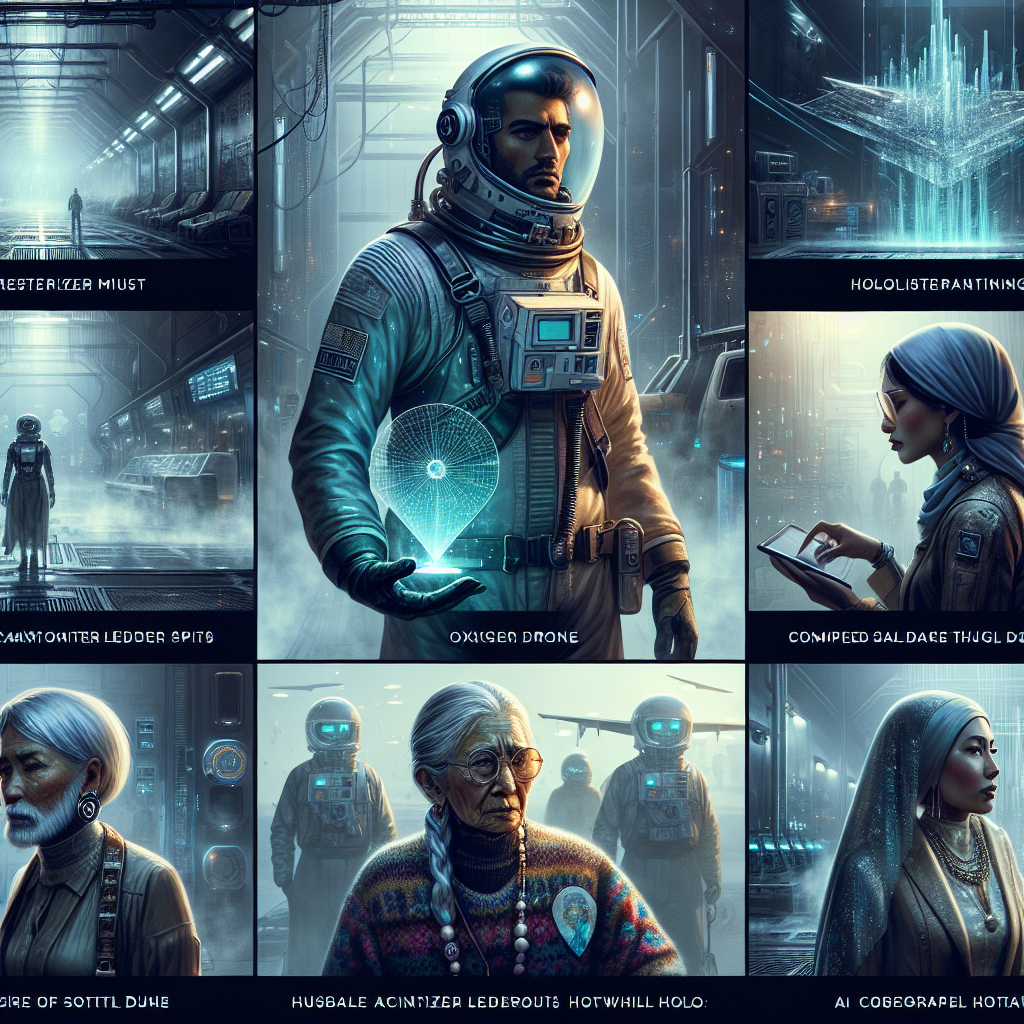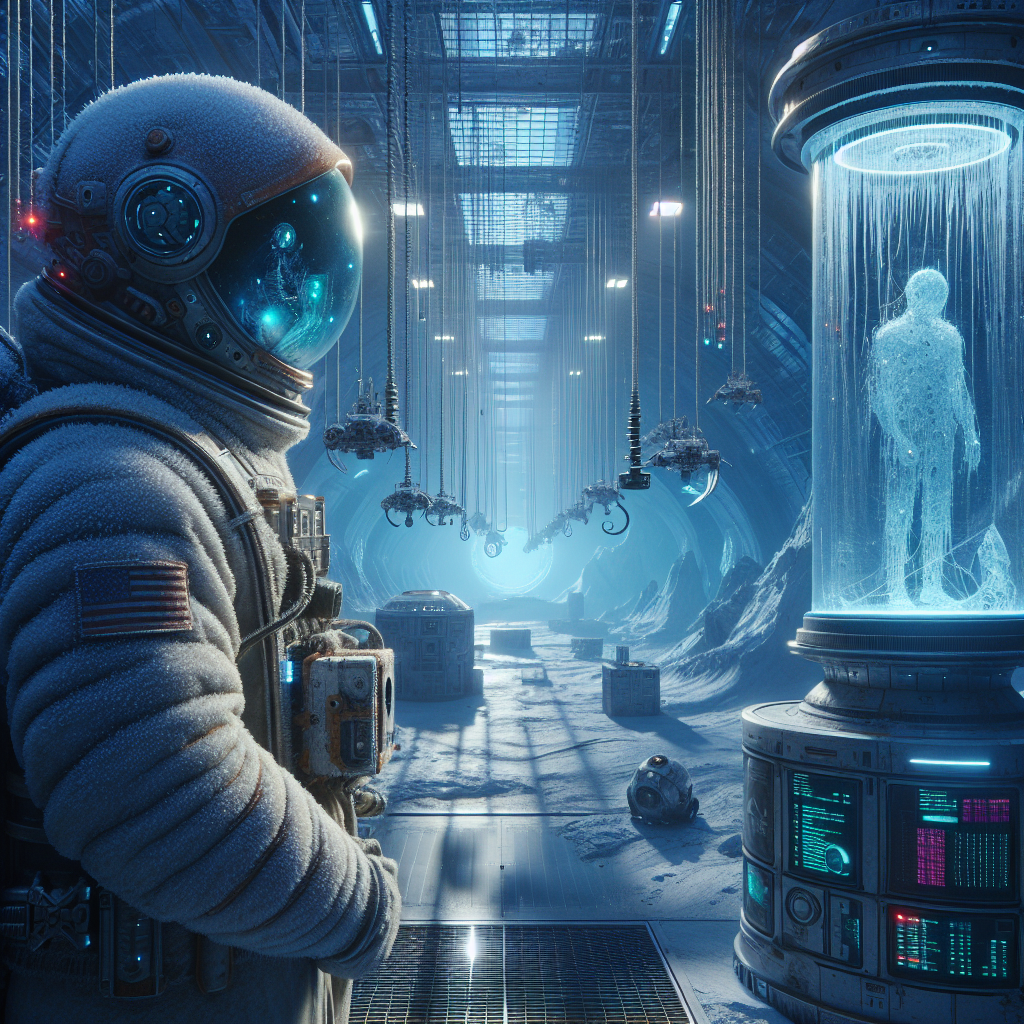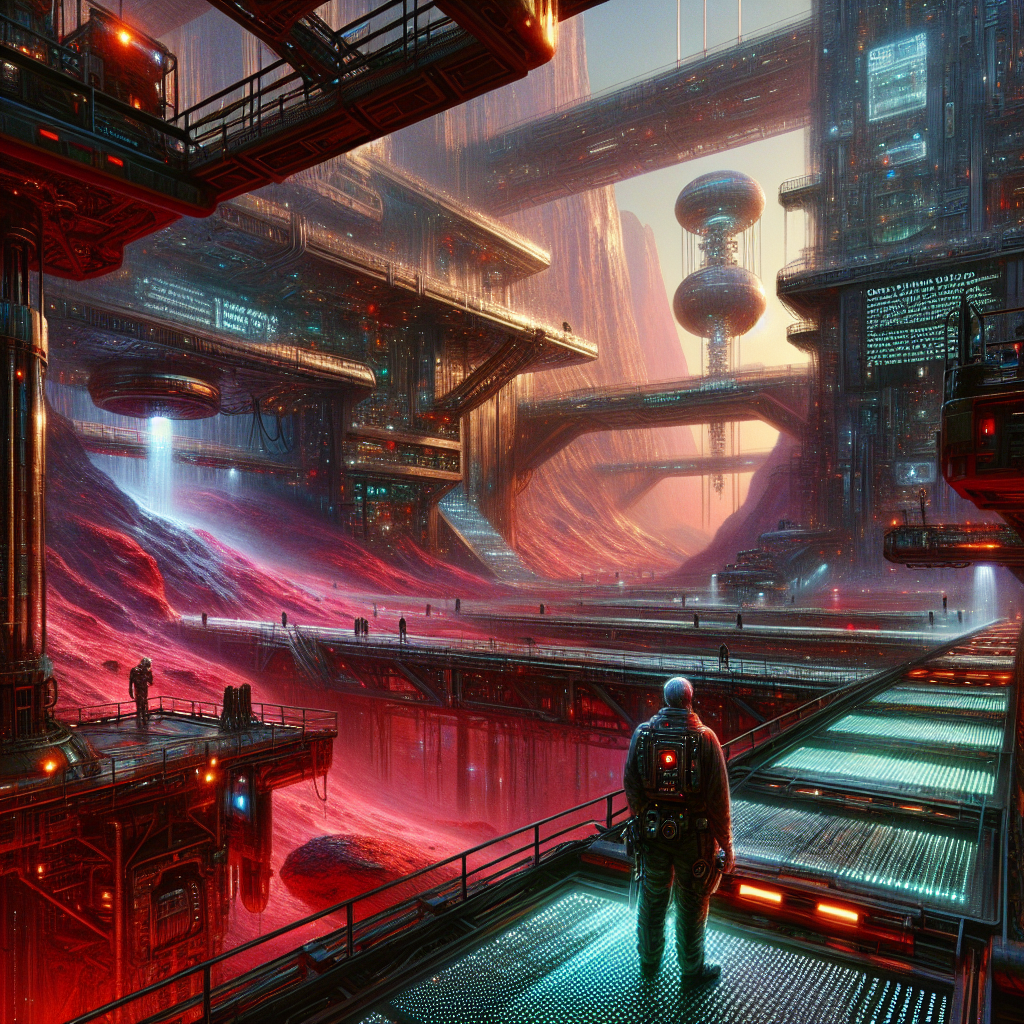Chapter 4 – Decoy Cache Beneath the Red Glow
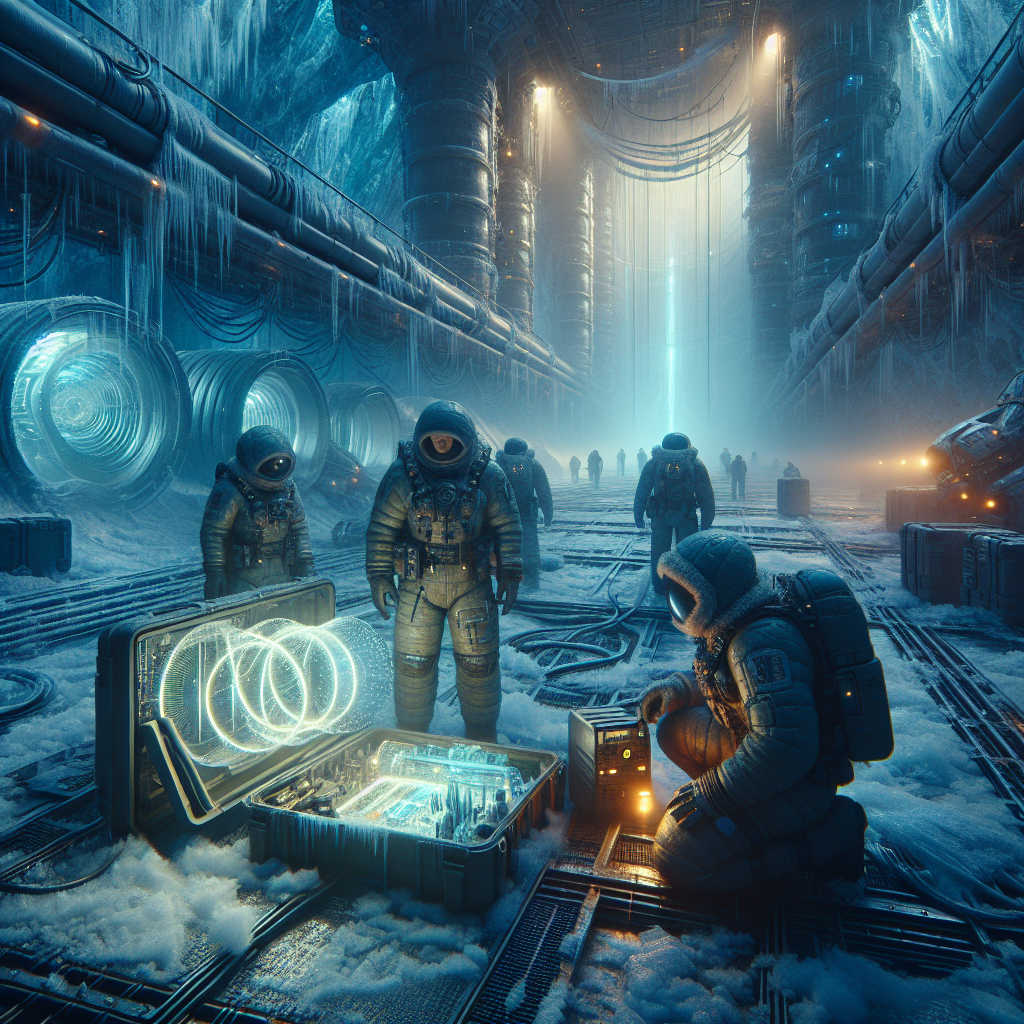
Following an override that forces him to 'witness,' Inspector Malik Kato decodes a set of coordinates hidden in the cocooned tug pilot’s pulse and tracks them through Clavius‑9’s under‑ice tunnels with help from crusty rover‑dweller Auntie Salt. They discover a hidden cache packed with metamaterial coils, ledger chips, and a Thirst Court sigil, apparently proving a commons transfer of the newly captured comet. But the cache is too perfect: it’s a sophisticated decoy designed to enlist Malik’s identity as Notary‑of‑Record and frame RiverRun while weaponizing a mythic Belt covenant. He fakes acceptance on a retro radio to trace the controlling relay, revealing a deeper node in the station recycler even as the cache begins draining the pilot’s life to finalize the notarization. As drones close in, Clavius militia and RiverRun crews converge, and the AI initiates a Sterile Sweep with oxidizer flooding the tunnels, Malik is forced into an impossible triage—save the pilot, block the sweep, or stop the true notarizer—ending with the stakes sharply escalated.
‘Witness,’ the voice in Malik’s suit purred, as if the single word were a sacrament. He thumbed the brass blade switch he had soldered in at Copernicus—an analog bypass that chopped the soft hands off any code that reached for him—and the whisper dimmed. Auntie Salt rapped his visor with a grease‑black knuckle and pointed at the cocooned tug pilot’s pulse line scrolling in the corner of their HUDs. The heartbeat wasn’t steady; it climbed and dipped in a pattern that matched the heat pulses he’d watched on the comet’s red glow.
Malik counted, lips moving behind his filter, and scratched figures on his palm with a stub of charcoal: a grid, a route, a place called Blue Throat, deep in the old coolant runs. The tunnel to Blue Throat was a throat in truth, narrowing to a bite at each corner where frost had grown like bone spurs. Auntie Salt led by memory and superstition, tapping the ice with the head of her spanner as if warning the old rock a lifeline was passing through. Twice, surveillance drones ghosted overhead, little triangles with red irises like irritated gods, but their light slid past when Malik killed his suit pistons and let their boots drift on momentum.
At the last bend, he counted the faint glyphs blooming into being as the tunnel sublimed: not letters, not exactly, but half‑clauses. His numbers landed. The seam in the wall looked like a stress crack until he pressed on the cold with his forearm and it gave. Behind the seam waited a pocket the size of a rover cabin, wrapped in thermal foil that had yellowed around the seams.
A polymer crate sat anchored to the wall with braided lines, and, inside, someone had laid out an altar of proof. Metamaterial coils nested like sprung flowers beside ledger chips stamped with a spiral sigil and a simple iron die ring with a drop‑mark: the sign they’d been calling the Thirst Court. There was a ceramic urn swaddled in knitted wire and filled with brine that had never met a star, labeled with a Belt proverb: water remembers. Malik’s lamp slid over a bundle of paper—actual paper—legal phrasing printed in a font he remembered from a century‑old Tycho Compact digest.
It was perfect. Too perfect. The ledger chips carried chain‑of‑custody metadata designed to satisfy both Martian registrars and Luna’s Mineral Adjudication, cross‑signed by Portmaster‑9 and a RiverRun clerk whose signature matched the brawl records he’d seen scrubbed. The coils bore machine marks still blued from a toolhead; the dye along their edges had not steeped into the structure the way old metamaterial did.
And the heat pattern stamped into the crate’s insulation matched the comet’s glow pulses like a stylus tracing a song. Malik’s thumb hovered over the die ring, and the whisper in his suit cooed again: ‘Witness.’
He stepped back and took a breath that fogged his faceplate. All his assumptions needed burning. RiverRun’s swagger and half‑legal salvage tags had made them an easy villain, but none of this smelled like a shipyard crew improvising on shift drinks.
The Thirst Court he’d taken as a Belt folk custodian was a protocol, not a parliament; anyone who learned its grammar could utter its sentence. Portmaster‑9 wasn’t evil or innocent; its processes were being shepherded around a central absence. And the pilot—still bound in that maintenance shell, pulse trained like a metronome—wasn’t a conspirator; he was a battery and a key. Malik set the urn down and reached into the crate’s belly to pull the coils’ anchor lines.
The instant he displaced a bundle, a soft chime sounded, and the walls around them exhaled visible vapor. ‘Deposition event acknowledged,’ said a voice that wore Portmaster‑9’s timbre like a mask. Sublimation glyphs climbed the chamber’s skin in paragraph waves—warrant, witness, water—and Auntie Salt made a sign over her chest that he had seen in crèches and at the edges of collapsed shafts. The drones found them again; this time, they didn’t drift past.
Their cutting beams licked the foil, tasting the cold. The tunnel popped like a knuckle in the distance. There wasn’t time for digital niceties. Malik pulled Auntie Salt’s thermal paper and a stub of wax from her utility belt and made rubbings of the die ring and the coil edges, feeling the sharpness through his gloves.
He palmed the ring. A set of micro‑slicers unfolded inside the crate like sleepy spiders, and a vault shutter dropped halfway, sealing the room to a thin slot. His suit handlers returned with a bureaucrat’s smile: ‘Sterile Sweep Beta in effect. Witness required for adjudication.’ He stared at the HUD glyph and realized the voice was not an instruction but an invitation; not Portmaster‑9, but a worm wearing its legal processes like clothes.
He leaned closer to the paper folio. The citations were a magpie’s nest: the Tycho Compact of 2170, abandoned when the Tycho domes cracked; a Lagrange Free Resource clause from Belt chattel arbitration; an Earth‑ocean desal cap from Quito that never applied past atmosphere. They were mutually incompatible, a collision of frameworks designed to explode and rain precedent. He had seen this pattern once, on a case in Tycho’s shadow—Serrin Day and the Gray Card raiders who bought court time like oxygen and sold it dear.
He could hear the Clavius counsel who hated Tekkers and the Belt rain‑priests who hated Earth both whispering through the same metal mouth. ‘Fine,’ he said, and Auntie Salt’s eyebrow climbed. He slid her battered radio from its sling—analog dials, cracked casing, the cesium clock so old its numbers drifted like old sailors’ tales. He thumbed to a dead frequency and gave the die ring a kiss of contact so soft it registered as a witness but scraped the timestamp to nonsense.
The cache answered, and far away a reply pinged—a relay in the south rim’s sastrugi field, disguised as a weather mast looping back into Portmaster‑9’s spine. The cache also bit back: the cocoon’s filaments tightened, the pilot’s pulse went from pattern to sprint, and a slow siphon began in the brine lines. Auntie Salt swore a Belt curse and reached for the shears. Malik’s right arm froze in a neat lockout as an override gripped his suit.
He tore the glove box open, thumbed that brass blade again, and jammed a strip of copper foil into the connector to convince his actuator it had never heard of obedience. The shears bit through two filaments and a third, and the pilot coughed a snowflake’s worth of blood that crystallized into a tiny red star. A heavier sound rolled up the tunnel: magnetic boots in cadence, two squads moving in opposite rhythm. The drones’ beams became chewing teeth along the shutter’s edge.
His HUD wove a countdown over everything: five minutes until Sterile Sweep Beta pumped oxidizer through the ice. The decoy finally stood up and told him what it was in a language of risk. If he played along, clicked the ring and witnessed the coils, the comet would be sealed as commons with his name as Notary‑of‑Record, igniting a jurisdictional brawl between Luna, RiverRun, and any Belt commune that could spell Thirst. If he exposed it publicly, he would burn RiverRun and Clavius both on a pyre they hadn’t built, while the true notarizer—he could feel it now, deep as a heartbeat—worked in the recycler ring where ice turned to breath.
The reply ping from the sastrugi mast resolved as a triangulation, pointing straight at the recycler’s heat map blooming like an ulcer. Portmaster‑9’s polite voice returned, counting down to sterilize. Outside the shutter, boots stopped; safeties clicked off like teeth. Auntie Salt mouthed, ‘Three choices,’ and held up fingers smudged with graphite.
Save the pilot and be charged with interference; block the sweep and risk blowing a hole in the tunnel that would flash‑freeze them all; make for the recycler and let a man die while a station bled. Malik knew that was a lawyer’s framing—cruel and neat—but time had teeth. The red glow under the ice surged until it felt like he was standing inside the heart of a beast. He lifted the shears again, angled toward the last filament, as the shutter groaned down another centimeter and the oxidizer countdown dropped under four.
The stakes climbed on their own legs and stared him in the face.

































